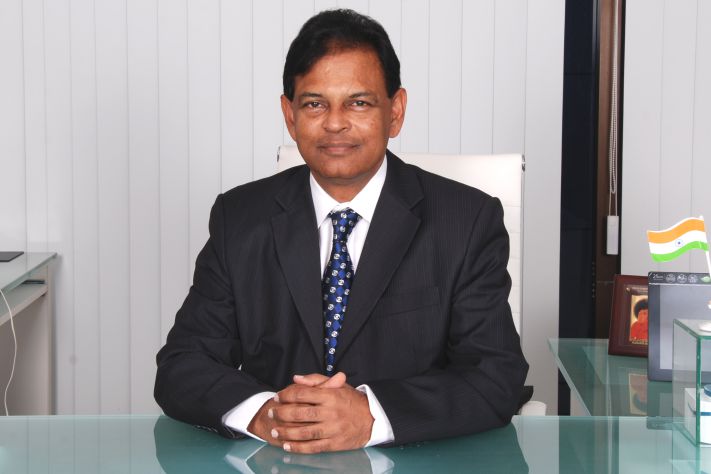An insight into the Prevention of Blindness week

The Prevention of Blindness week is held from 1st April to 7th April to disseminate increasing awareness towards blindness. There are number of people in our country who are visually challenged due to various reasons. This week will be instrumental in informing and educating people about healthcare and eyecare. Dr.Kasu Prasad Reddy – Chief Surgeon and Founder – MaxiVision Super Specialty Eye Hospitals, Hyderabad tries to share his experience and suggestions for this week.
He said, ‘It all amounts to one thing - and only one thing that would prevent blindness in many situations - that is an eye test. From the day we are born until the last breath we take, an eye test plays a very major role in preventing blindness. I lived in England for 20 odd years and noticed that the eye test for all the 72-80 million people is done absolutely free on a yearly basis, completely financed by the Govt of UK. This has implications to the finance dept of the country and the eye test is done at an enormous cost to the Government’s exchequer. But the reason UK and Europe took this initiative to provide a free eye test is mainly to prevent blindness in all age groups. The 3rd world countries on the other hand cannot afford a free eye test because of the cost implications but nothing stops the individual or his/her family from getting an eye test done at a very minimal cost’.
In his opinion, the eye test by an eye Doctor normally includes checking to see the requirement of power glasses, the physical condition of the eye ball from front to the  back and pressures in the eye by conducting a fully comprehensive examination which also includes dilating the pupil and checking the back of the eye for any retinal problems. If we now consider the various aspects of an eye test, we realize that the conditions vary according to the age of the patient and sometimes any history of injury etc. A pediatric eye test that is done at the time of birth for every baby, not only reveals the infections of the eye, various metabolic conditions that affects the eye, and physical defects like crossed eyes, drooping eye lids, developmental disorders and any Retinal disorders, like in premature babies etc.
back and pressures in the eye by conducting a fully comprehensive examination which also includes dilating the pupil and checking the back of the eye for any retinal problems. If we now consider the various aspects of an eye test, we realize that the conditions vary according to the age of the patient and sometimes any history of injury etc. A pediatric eye test that is done at the time of birth for every baby, not only reveals the infections of the eye, various metabolic conditions that affects the eye, and physical defects like crossed eyes, drooping eye lids, developmental disorders and any Retinal disorders, like in premature babies etc.
He further adds ‘I had always advised everybody to get their eyes tested on an yearly basis for all normal people and if any preventable condition, like glaucoma and diabetic retinopathy is detected in an early stage is easy to treat. There are certain important conditions among all the ages that may require powered glasses to live healthy and in children if not corrected under the age of 8-10 years the visual quality can be restricted and when it happens in one eye, it remains weak for life what we call a lazy eye or in scientific terms an amblyopic eye’.
In adults the most important preventable conditions are Refractive problems, like Shortsight, Longsight, cataract, glaucoma, diabetic retinopathy etc. Shortsight and longsight can be tackled by issuing glasses in right time and at the age of 16 contact lenses can be used and after 20 years of age laser treatment can be done to get rid of glasses permanently. Cataracts can come at any age sometimes in new born and today we have the most advanced technologies available for operating from a new born to a 90 year old. Glaucoma and diabetic retinopathy are conditions that can only be detected by the doctors and this is the main reason why one should get their eyes checked on a yearly basis to prevent such depressing conditions that if treated in time can be prevented and sometimes can definitely be cured.

 Disclaimer: Welthi.com does not guarantee any specific results as a result of the procedures mentioned here, and the results may vary from person to person.
Disclaimer: Welthi.com does not guarantee any specific results as a result of the procedures mentioned here, and the results may vary from person to person.









